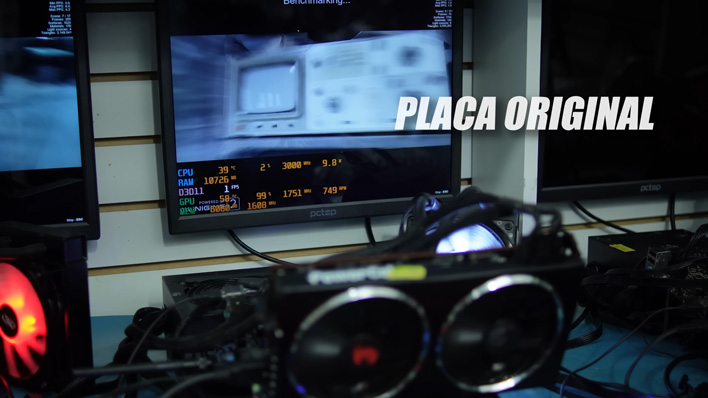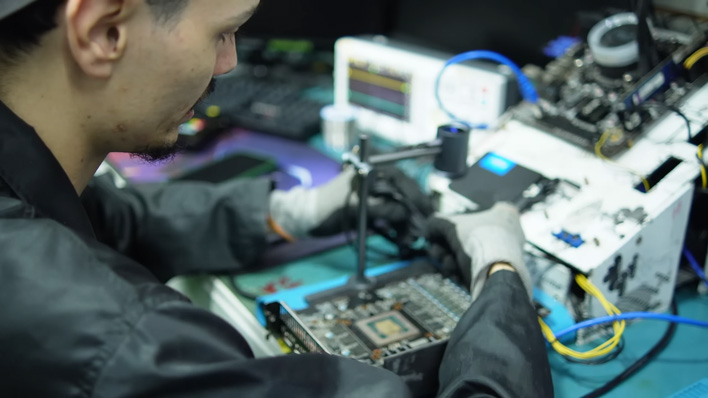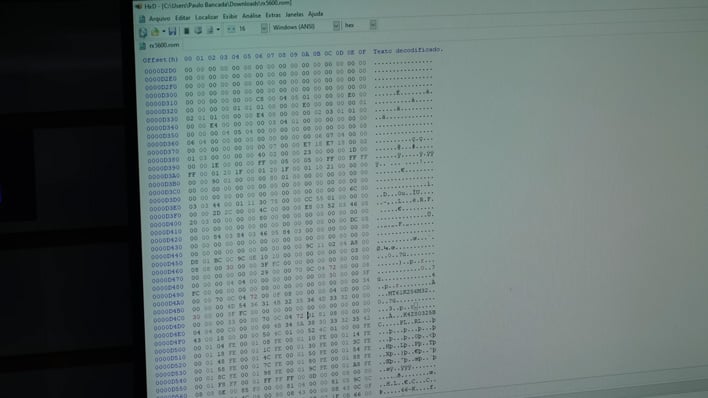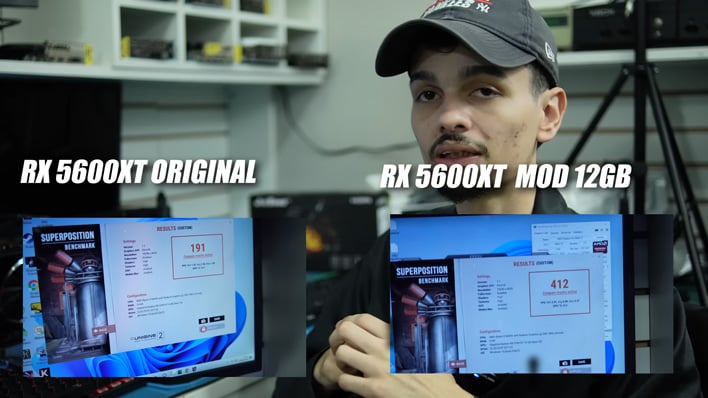Radeon RX 5600 XT Gets Modded With 12GB Of VRAM For A Huge Performance Boost
AMD has taken some pleasure in pointing out deficiencies in some of NVIDIA’s offerings, but even the red team isn’t perfect. The Brazilian electronics repair team behind the Paulo Gomes channel on YouTube have released a series of videos where they physically add or swap memory chips on NVIDIA GeForce cards to expand VRAM capacity. The results have clearly laid bare the impact of insufficient video memory on gaming performance.
The subject of the latest video, however, is an AMD Radeon RX 5600 XT. This Navi 10 based card was released in January of 2020 at a time when its 6GB frame buffer would have been considered more than enough for its performance category and 1080p gaming. While that assessment is still somewhat true, there are cases where that 6GB can be overrun, no matter how unrealistic.

Case in point, Paulo Gomes shows the unmodified card running the Unigine Superposition benchmark at a ludicrous 10240 x 4320 resolution. That factors out to just north of 44 megapixels, or around 21.3x the pixel count of 1080p. It is little surprise then that the card chokes out an average of 1.43 FPS and a score of 191.

Noting that the VRAM buffer was maxed out through the run (6000+ MB in use), they decided to see what doubling the memory capacity could do for performance. The video details the process of desoldering the 6 x 1GB Samsung memory chips and replacing them with 2GB variants to bring the total capacity up to 12GB. He explains that the two remaining chips are unused and do not need to be replaced. That's just enough to support the benchmark's full VRAM load, which sits just north of 10GB.

As with the NVIDIA cards, the mod requires more than a simple chip swap. Unlike the NVIDIA cards, it is actually feasible to edit the AMD GPU’s ROM so other workarounds (like borrowing a VBIOS from a higher memory variant or swapping around resistors) are unnecessary. Some selected edits with a hex editor and reflash were all that was needed here – and a pile of research to figure out what edits to make in the first place.

With the VRAM now clocking in at 12272 MB, the card was rerun through the ultra high-res Unigine Superposition test. The results are still pitiful, but in a relative sense the average framerate has more than doubled to 3.09 FPS. Now scoring 412, the mod yielded a 216% improvement in framerate which is remarkable. My own GeForce RTX 4090 clocks in around 21FPS in these same conditions, for reference, and that costs an order of magnitude more.
Of course, few would expect to play Minesweeper at a resolution of 10240 x 4320, let alone run a dynamically lit 3D scene on the Radeon RX 5600 XT. Nevertheless, it is a fun exploration of commonly overlooked bottlenecks in a system. At the same time, we would caution readers about putting too much emphasis on these results.
YouTube Can Auto-Translate Captions From Portuguese Under Settings
Apart from a few select titles, VRAM limitations even on leaner cards are seldom much of an issue within a card’s intended resolution and performance class. Even if a higher resolution is demanded, gamers can compensate by turning down texture quality or other settings without missing out on too much of the visual experience. We would, of course, like to see cards outfitted with more VRAM from the jump – looking at you, GeForce RTX 4070 Series – but the flip side would bring even greater cost without any tangible benefit in many games.


